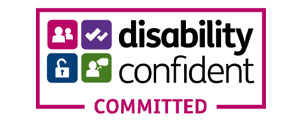Top tips on writing a great covering letter
Writing a great covering letter or supporting statement for a non-executive role needs a bit of thought. The aim is to underline your suitability for the appointment, which your CV will already have done for you. But a great supporting statement can also be really powerful in highlighting your motivation for becoming part of the non-executive team. Here are our top tips for getting the right message across:
- Talk about the organisation you are applying to be part of before you talk about yourself. We still read lots of really dense covering letters that are overly detailed where every paragraph begins with “I”. The work any board does happens at a strategic, ‘big picture’ level. Do make sure that you understand, and can refer to, the big strategic priorities an organisation is thinking about for success. Doing this enables you to connect with the reader by showing them you understand their journey and therefore how your own background is relevant and helpful.
- Keep it focused and relevant. Avoid writing pages and pages. Our advice is always to keep the covering letter high level, personal and relevant. Play back to the reader the fact that you have really understood what matters most to them. It’s much better to have two pages of text that resonates with the specific brief for the role and connect with the organisation’s specific position, than five pages of beautifully written text that talks about everything you have done in your working life.
- Remember the experiences, skills and qualities that will be more relevant to the role and focus on these. This is especially important for first-time non-executives because it takes time and practice to transition out of an executive / day job mindset, and into a non-executive way of thinking and seeing the world. Draw a line down the middle of a piece of paper and list your executive skills and strengths on one side, and the skills, experiences and qualities relevant to the board room on the other. When you have completed your first draft application, go back through it and check that you haven’t strayed too far on to the executive side of the page.
- Make it personal. Especially in the not for profit sector, organisations set a lot of stall by personal motivation and connection when they are looking for new Board members. You will, in all likelihood, need to bring the specific backgrounds or experiences as set out in the pack, but if there is a particular reason why you are attracted to a cause or mission, do say so. Stating personal reasons for wanting to join an organisation used to be seen as irrelevant in a largely competency-based recruitment scenario; however, this is changing and how people bring their whole selves to the board room, to make their best contribution, aligns with a fresher, more contemporary approach to Board recruitment.
It’s important to follow the instructions carefully whenever you apply for any role. You might find that, for some roles, you are instructed to answer a particular question or follow a certain format. In these cases, always do as you are asked, but you cannot fail by saying something about your motivation and interest in the organisation, even if you only add a few sincere and personal lines at the beginning or at the end.
2025 Budget
We wrote to 400 leaders to ask them for a reaction to last week’s Budget. Here’s what they said.
Funding Crises and the Search for Financially Resilient Leaders
Councils in England are under systemic strain. The Bennett School of Public Policy estimates a collective funding gap of £9.3 billion over the next few years, with most authorities forecast to operate in deficit. Meanwhile, Grant Thornton warns that up to 40% of councils could face financial failure within five years without new income or deeper cuts.
Statutory Officers Under Pressure: Leading in a Fluctuating Political Environment
Statutory officers have always been central to the integrity and stability of local government. Today, their roles are under unprecedented strain. Political volatility, heightened scrutiny, constrained resources, and rising public expectations have created a more complex and demanding environment than ever before.
ACCREDITATIONS


ESPO is a public sector owned professional buying organisation (PBO), specialising in providing a wide range of goods and services to the public sector for over 40 years. Starfish Search has been awarded a place on ESPO’s Strategic HR Services framework (3S). Services we offer under the framework include: Lot 1, Executive and Managerial Interim Recruitment Lot 2, Executive and Managerial Permanent Recruitment.


Starfish are proud to be certified Disability Confident Committed. This scheme provides employers with the knowledge, skills and confidence needed to attract, recruit, retain and develop disabled people in the workplace.


Crown Commercial Service supports the public sector to achieve maximum commercial value when procuring common goods and services. In 2020/21, CCS helped the public sector to achieve commercial benefits equal to £2.04bn - supporting world-class public services that offer best value for taxpayers. Starfish Search has been named as a supplier on Crown Commercial Service’s Executive and Non-Executive recruitment. Services we offer under the framework include: Lot 3 - Non-Executive and Public Appointments.


Bloom, launched in 2012 is the UK’s leading marketplace for professional services. They provide an end-to-end solution for the procurement, contract management and payment of all professional services, via the compliant NEPRO³ framework. Their public sector clients have access to 20 professional services categories and over 4500 accredited suppliers. Bloom provides swift routes to market via either direct award or mini competition. Starfish is an accredited supplier to BLOOM; our services can be accessed via this framework - Executive and Non-Executive Search and Interim Management.
Join the starfish team
We hire people who bring insight, integrity and ambition to their work. If you’re ready to contribute to shaping the future of leadership and you want to explore our current opportunities please click the link below.
find out more